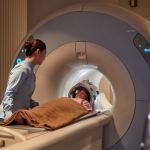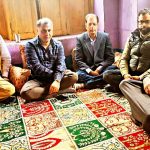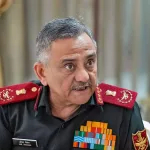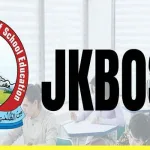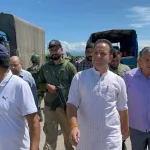HARSH REALITY
In the heart of Jammu & Kashmir, a silent crisis in Occupational Therapy is unfolding within government medical colleges and their associated hospitals—one that deeply impacts some of the most vulnerable members of society children with special needs. Despite growing awareness and a rising number of diagnoses of developmental disorders such as Autism Spectrum Disorder (ASD), Cerebral Palsy, ADHD, Down Syndrome, and Sensory Processing Disorders, Occupational Therapy (OT)—a critical early intervention for managing these conditions—remains either severely underdeveloped or entirely absent in government-run medical institutions across the Union Territory.
As a result, thousands of children are at risk of missing the vital early intervention window, leading to long-term developmental delays and a significantly diminished quality of life. This alarming gap in care has left many parents feeling helpless and emotionally overwhelmed, as they struggle to find proper treatment and support for their children within the public healthcare system.
Occupational Therapy is a cornerstone of multidisciplinary care for children with special needs. It plays a vital role in helping them develop essential life skills such as dressing, eating, fine motor coordination, attention regulation, cognitive functioning, and social interaction. However, government medical colleges in Jammu & Kashmir—including the prestigious Government Medical Colleges (GMCs) of Srinagar, Jammu, Anantnag, Baramulla, Udhampur, Kathua, Doda, and others—lack dedicated and properly equipped Occupational Therapy facilities and setups. T
These institutions are deficient in accessibility features, appropriate therapy rooms, and the necessary infrastructure and sensory equipment required to effectively meet the needs of children with various disabilities. In several colleges, such as GMC Doda, Rajouri, Handwara, and Kathua, there is a complete absence of Occupational Therapists staff. In many cases, even Rehabilitation Therapists are not available, leaving children without the critical support they need during their formative years.
Infrastructural deficits lie at the heart of the problem. Most Government Medical Colleges (GMCs) in Jammu & Kashmir lack even the most basic equipment required for effective Occupational Therapy treatment, such as sensory integration tools, therapy balls, adaptive chairs, fine motor skill development kits, cognitive tools, ADL (Activities of Daily Living) kits, and other essential assistive devices and accessibility.
According to reports from several parents— including Umesh Sharma, a parent of an autistic child and a noted disability rights activist—there are no dedicated, accessible therapy rooms, sensory gyms, calming spaces, or child-friendly environments where therapy can be delivered in a structured and supportive manner. As a result, families are left without the essential facilities needed for their children to receive the occupational therapy they urgently require, further compounding the daily challenges faced by both the children and their caregivers.
At Government Medical College (GMC) Jammu, Bakshi Nagar, within the Occupational Therapy (OT) Services department, I have referred a significant number of children with special needs for essential occupational therapy interventions. Regrettably, despite consistent efforts and repeated follow-ups, parents continue to report that their children have not received any meaningful or sustained therapy services.
This persistent lack of access to care has left many families feeling emotionally drained, mentally exhausted, and increasingly disillusioned with the healthcare system. These parents, already burdened with the complex needs of their children, are left without the professional support that is critical for early intervention and long-term developmental progress. The absence of structured OT services not only delays treatment but also diminishes the hope and confidence families place in public health institutions.
According to feedback from several parents, there are currently five occupational therapists posted in the Occupational Therapy (OT) department at GMC Jammu. However, some therapists have reportedly informed families that the hospital lacks a properly established OT unit, along with the essential infrastructure and therapeutic equipment required to carry out effective interventions.
As a result, they are unable to deliver the much-needed therapy services, despite being officially appointed for this purpose. Parents have also expressed frustration that, although these therapists receive substantial salaries from the government, they often excuse their duty are in wards or departments as reasons for not attending to children with special needs. This has led to a situation where the very professionals designated to support these vulnerable children are either unavailable or unwilling to provide the services for which they were hired.
This lack of infrastructure has compelled many families to turn to private rehabilitation centers and child development clinics, where therapy services are expensive and often unaffordable for economically weaker sections. I have personally raised this issue several times with the Head of the Orthopedic Department at GMC Jammu, but unfortunately, there has been no meaningful improvement or resolution to date.
In 2023, I formally submitted a written representation to the Ministry of Health New Delhi regarding this issue. The ministry immediately forwarded the matter to the Commissioner Secretary of Health under letter number N. 37014/04/2023 for investigation and necessary action. Despite this official intervention, there has been no progress in upgrading the occupational therapy department at GMC Jammu or in acquiring the required equipment to initiate a separate functional therapy unit. Consequently, children with special needs in Jammu continue to be deprived of basic rehabilitation services, and their families remain without access to the care they deserve under public health provisions.
It is particularly concerning that despite the appointment of two occupational therapists in 2015 and an additional three therapists in 2023, no operational separate OT unit has been established in GMC Jammu Bakshi Nagar. Currently, whatever limited services are offered are being carried out in the physiotherapy room, which lacks the specific design, tools, and therapeutic environment needed for children with developmental, sensory, and neurological challenges.
Furthermore, many parents have reported being redirected to Shalimar Hospital, only to discover that the situation is no better—there too, a proper therapy room and equipment are lacking, leaving families to search from one hospital to another without any real support or outcome.
Similar issues have been reported from other government medical institutions such as GMC Anantnag and Government Medical College Srinagar (SMHS Hospital), where occupational therapists have informed families that they cannot provide therapy due to the absence of appropriate infrastructure, equipment, and dedicated space for children.
Parents from several districts have shared that therapists often advise them to visit private clinics, as the government-run services are non-functional and no proper equipment and patient overflow. In many medical colleges like Baramulla, occupational therapy is reduced to a one-time assessment, where a few activities are demonstrated to parents, and they are instructed to follow up after 20 days—without any provision for structured, ongoing, or monitored intervention.
In January 2025, I once again raised this concern through the Samadhan public grievance redressal platform under no.GRV2025/69545. My grievance was forwarded to the relevant government medical colleges. The Heads of Department responded stating that requisitions for the necessary equipment have been submitted and that therapy rooms have been identified in the hospital. However, no tangible progress has been made on the ground. There is still no operational therapy setup, no procurement of equipment, and no systematic services being delivered to those in need. Every special need parents want proper occupational therapy sessions at least 4 times a week for better prognosis.
Several Parents from Jammu as well as Kashmir have reported that all the occupational therapists working contractual as well as permanent at GMC Jammu and other various medical collages like Baramulla, Anantnag have started own private clinics and are referring parents to their these clinics as well as colleagues, rather than providing proper therapy sessions within the hospital. This practice further exacerbates the challenges faced by families who are already struggling to access essential services, and it raises concerns about the commitment of these professionals to their public healthcare duties.
This prolonged neglect and systemic inaction are causing immense and irreversible harm to children with special needs and their families across Jammu and Kashmir. These children are being deprived of their basic right to early intervention, therapy, and inclusive healthcare—rights that are vital for their development and well-being.
For parents of special needs children in rural areas or low-income families, the absence of occupational therapy in government institutions is devastating. Private centers, mostly concentrated in urban pockets like Srinagar and Jammu, charge between Rs 400 to Rs 500 per session—a cost that is out of reach for many. Additionally, some families travel hundreds of kilometers for a 30-minute therapy session, losing precious time and resources.
The long-term consequences are equally grim. Without timely occupational therapy, many children fail to develop independent living skills and are at risk of lifelong dependency. This not only diminishes their potential but places a tremendous psychological and economic burden on their families.
To effectively address this crisis, the higher officials of GMCs must take immediate, targeted, and sustained action to ensure that children with special needs receive the critical occupational therapy they require:
Establish Separate Occupational Therapy Departments
Every government medical college in Jammu & Kashmir should be separate equipped with a fully functional Occupational Therapy department. These departments must be staffed by number of qualified, trained professionals and supported by the necessary infrastructure, including therapy rooms, equipment, and sensory tools essential for effective treatment.
Incorporate OT into Multidisciplinary Clinics
Pediatric and neuro-developmental early intervention clinics in GMCs should integrate occupational therapists into their multidisciplinary teams. This ensures that children receive comprehensive, holistic care that addresses their developmental, cognitive, and sensory needs in a coordinated manner.
Funding and Policy Support
Allocate specific funding under health and disability welfare schemes to build the required OT infrastructure, including therapy equipment and dedicated spaces. Additionally, subsidize therapy sessions for families who cannot afford private care, ensuring equitable access to essential services for all.
Regular Performance Reviews of OT Professionals
The Heads of Departments (HODs) of the relevant units should conduct regular performance reviews of occupational therapists every six month. These reviews should assess how many children are receiving regular interventions, the progress of each client, and whether the therapists are providing quality care. This will ensure accountability and help identify areas where additional support or training may be needed.
Conclusion
The absence of occupational therapy in government medical colleges in Jammu & Kashmir highlights a broader systemic neglect of disability care and pediatric rehabilitation, serving as a stark reminder of how far we are from achieving truly inclusive and equitable healthcare. This gap is not just a missing service—it represents a fundamental failure to provide children with the necessary tools to reach their full potential.
A comprehensive strategy is urgently needed, one that addresses infrastructure, human resources, training, and policy reform. This is not merely about filling a void, but about ensuring every child, regardless of their abilities, has the opportunity to thrive.
Immediate and decisive action must be taken to establish fully functional occupational therapy departments in all government medical colleges, especially at GMC Jammu, GMC Anantnag, and GMC Srinagar. This is essential not only for the children and families who are currently underserved but for the future of healthcare that values and supports every individual, regardless of their physical or developmental challenges.
(Author is Sr. Pediatric Rehab Therapist & Social Worker (MSW) Working for Disability & Child Rights. Feedback: [email protected])



